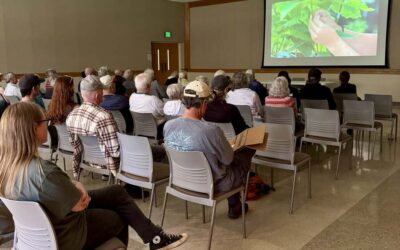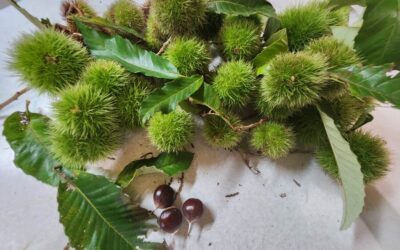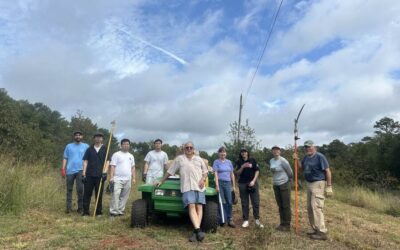Connect With Us
Follow us on Facebook!
Upcoming Events
Our Mission
The mission of the NC/SC Chapter is to assist in the work of The American Chestnut Foundation in bringing about a revival and a renewal of the American chestnut tree as a prominent part of the forests of the United States of America by strengthening the organization’s financial and membership base, education, public awareness, and research activities.
Once there were over four billion American chestnut trees in the United States. One out of every four trees in the Appalachian forests was a chestnut! From Maine to Mississippi, American chestnut trees thrived and matured as the dominant species, towering over their neighbors the oaks, hickories, and tulip poplars. And they were huge. One tree near Waynesville, NC, was over 17 feet in diameter — 53 feet in circumference!
Foresters called the American Chestnut “the most useful tree in the woods”, because it provided abundant food for wild animals and livestock, a cash crop for mountain farmers, a light, yellow-colored wood for furniture, and rot-resistant lumber for fences, utility poles, and siding.
In 1904 the chestnut blight disease, caused by an Asian fungus Cryphonectria parasitica, was discovered in the Bronx Zoo of New York City. The blight spread quickly by air and on the bodies of insects, birds, and animals.
By the 1930´s, almost all the mature chestnut trees in the Carolinas were dying back to their roots. Thanks to soil organisms, however, many of the roots remain alive, sending up small sprouts that constantly die back from the blight even today.
Now, with an approach called backcross breeding, the American Chestnut Foundation and its Carolinas Chapter are working to revive this great King of the Forest. Within a decade, we expect to have blight-resistant trees ready for testing in North and South Carolina. It is our hope and expectation that the American chestnut will resume its place as a significant species in our forests. The members of the Carolinas Chapter of The American Chestnut Foundation are heavily involved in reaching this goal: finding surviving trees, pollinating them, harvesting seed, and planting orchards for eventual reforestation. We sincerely appreciate the dedication, hard work, and enthusiasm of our members and ask you to join us in our efforts to save this great tree.
NC/SC Chapter Board of Directors
Peggy MacDonald, Leicester, NC, President
Open Position, Vice President
Open Position, Secretary-Treasurer
Haiying Liang, Clemson, SC, Membership and Outreach Officer
Jon Taylor, Asheville, NC
NC/SC Chapter Website Administrator
Kimberly Greenway, Asheville NC
Latest News
American Chestnut Day At The North Carolina Arboretum, Asheville, NC, October 4, 2025
The American Chestnut Foundation and the North Carolina/South Carolina TACF Chapter hosted this special event for the public at the NC Arboretum in October. Many thanks to our sponsor, Warren Wilson College! Thanks also to the North Carolina Arboretum for allowing us...
Chestnut Harvest at the Pryor Farm, Edneyville, NC, September 27, 2025
Even with the threat of bad weather, we had volunteers come to help collect open-pollinated chestnut burs and nuts today, at the Pryor Orchard. We thank the first-time volunteers, Kelly, David and Gwen, for several hours of pulling burs off of the trees and...
Chestnut Harvest at the Chestnut Return Farm, Seneca, SC, September 25, 2025
Today, controlled-pollinated hybrid chestnuts in protective bags were harvested. Also, open-pollinated chestnuts from the best trees were collected. Jamie Van Clief from TACF directed the work. We were happy to have so many helpful hands today to make the harvest go...





